Happiness is when what you think, what you say, and what you do are in harmony.
Mahatma Gandhi
The lockdown in the country due to the COVID-19 pandemic has gradually started rolling back with the conditions prescribed therein. A look at the sector-wise workforce engagement in the country as per statista.com shows that the agriculture, services, and industry are engaging 43.21%, 31.9%, and 24.89% of the total workforce respectively. Thus, agriculture still holds the major share of engagement of human resources followed by services & industry sectors.
Lifting of lockdown has provisioned for conditional starting of the economic activities
The lifting of lockdown has provisioned for conditional starting of the economic activities in every sector. The country is still under lockdown in reasonable portions, but the intent of granting permission for starting economic activities holds the potential of wealth creation for all those engaged in them.
Do read: Lockdown Guidelines For Lockdown 3.0
This is happening at a time when the return of migrant workers back to their homes is underway with the support of the Government through special public transport. Also, in certain cases, where the migrant workers are unable to travel by public transport, the strong will of the workers has led them to reach their places on foot, bicycle, etc. Thus, it is not difficult to conclude that the availability of workers at urban workplaces would be meager.
Availability of workers at urban workplaces would be meager
The sector wise workforce data makes it evident that the agriculture activities have the capacity of engaging a large proportion of the population. Obviously, the migrant workers reaching their villages will also be available to contribute to the agriculture economy provided their health checkups are favourable. It needs to be understood that the agriculture sector of the country has usually not depended upon the migrant workers and the local manpower has been catering to its requirements. However, the available manpower in villages will increase and the available total remunerative man-days get distributed among the larger numbers comprising of local workers & returned migrant workers leading to disguised unemployment.
Do read: Villages: The New Wheels of Economy in Post-Pandemic World
The second major sector providing jobs happens to be the service sector. The workforce engaged in services will gradually return back to work with the restoration of normalcy. However, the restrictions of movement, if any will be deterrent to it. Quite likely, the service sector may also find it difficult due to the unavailability of the lower class of the workers which has left the urban workplaces. Middle and upper strata of workers, having not migrated out of their work cities, will immediately revert back in the service sector smoothly but the smaller number of lower strata workers in the support system will give services sector a bumpy ride till normalcy. The unorganized services sector will have difficulty till the lockdown is not lifted completely.
The unorganized services sector will have difficulty until the complete lifting of lockdown.
The industry sector is under lockdown for many weeks and has started reopening as per the orders of the competent authority. This is the sector that has been most affected by the departure of migrant workers to their native places. The difficulties are likely to be faced by the employers due to the unavailability of workers in the requisite number. Perhaps, anticipating the lesser number of workforce, the air is filled with the initiatives to reform the labour laws applicable to workers so as to offer greater freedom to employers in the smooth functioning of the industry in the present time of hardships. The reforms, such as change in contract labour conditions, enhanced working hours with suitable compensation, measures to reduce the industrial disputes, etc. are envisaged to ensure that the industry is equipped to sustain the brunt of the COVID-19 in post-lockdown time. The partial suspension of labour laws in some parts of the country will accelerate the resumption of industry operations at the earliest. But the reforms in labour laws require due care, else the sense of insecurity in them may affect poor turnout. Safety net around labourers is essential to infuse confidence in them for returning back to work else their wholehearted participation may lag.
Undoubtedly, the employers need empowerment and freedom for restoring the industry back to normalcy, but the complete unshackling could have its implications. The large population of migrant workers having agricultural background further fills them with some sense of confidence of surviving at their native villages and doing something with the least chance of any adversity met out to them.
Visit Ministry of Labour & Unemployment : Labour Welfare and Social Security Rules
Migrant workers having agricultural background have the confidence of surviving at their native villages
Also, the tougher times faced by the migrant workers in the lockdown period may desist them from coming back to the workplace. We need to remember that the perception of workers and their families about the ongoing spread of the coronavirus and its affliction has changed a lot in the present time. Due to these reasons, the return of migrant workers, who have somehow reached their native villages and are with their families, back to their workplaces could have certain difficulties unless the fear of monstrous virus is cleared.
Labour is prior to, and independent of, capital. Capital is only the fruit of labour, and could never have existed if labour had not first existed. Labour is the superior of capital, and deserves much the higher consideration.
Abraham Lincoln
Do read: Poverty Alleviation: An imperative for sustainable development
It would be prudent to educate the community for taking all precautions while continuing with normal life. The norms available for preventing the virus infection need to be communicated widely for practicing by all. It is needless to mention that every human is concerned about his/her survival, so it is not a problem to ask the society for an amended lifestyle to avoid the threat of the coronavirus. For the earliest restoration of normal operations in the society and gearing up of the economic activities, it seems that the duties and rights of individuals should not be sacrificed so as to infuse confidence in every section of the society in the fight against the pandemic. The wholehearted participation of every member of society is essential for resuming the growth and development pattern of the pre-lockdown period.
Power based on love is a thousand times more effective and permanent then the one derived from fear of punishment.
Mahatma Gandhi
Do read: Resolve to respect labour on International Workers’ Day
By The Editorial Team, TheRise.co.in

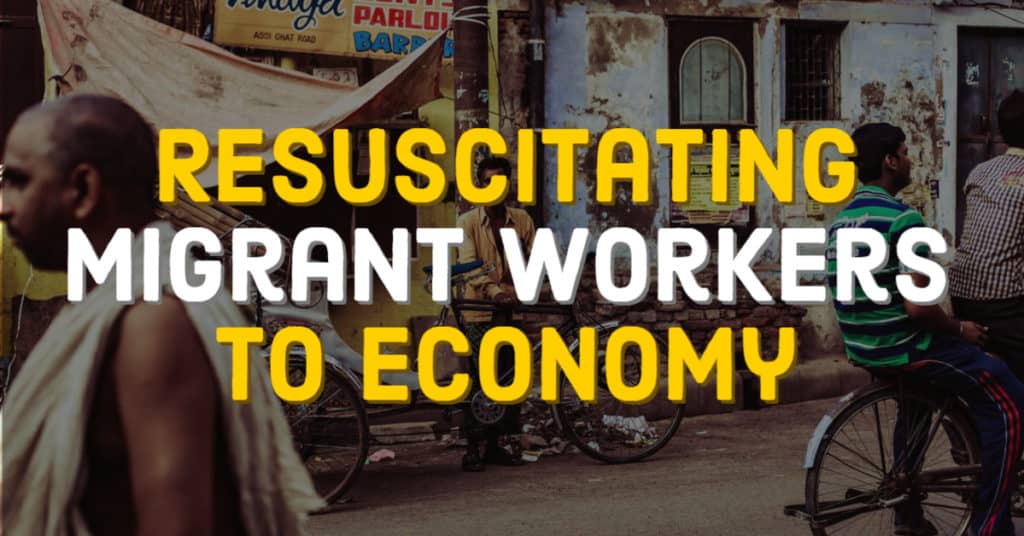






















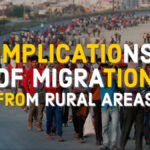


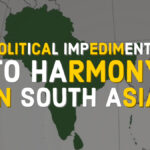







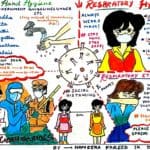
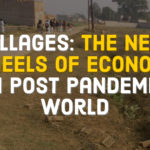













Pingback: Villages: The New Wheels of Economy in Post-Pandemic World
Pingback: Resolve to respect labour on International Workers' Day - The Rise.co.in
Pingback: Post Lockdown Indian Economy Measures - M M Goel The Rise.co.in
Pingback: Are new Gods in making ? : Democracy 2020 - By Prateek Yadav
Pingback: Introspecting the COVID-19 Lockdown in India - TheRise.co.in
Pingback: GST and Governance in India - TheRise.co.in - M M Goel
Pingback: Post-Corona Recovery through Forestry - TheRise.co.in
Pingback: Implications of Migration from Rural Areas - TheRise.co.in
Pingback: Is Urbanization Taking a Wrong Direction in India? - TheRise.co.in